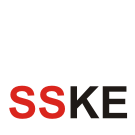From SSKE
Working with the service sector requires researchers to have a strong interdisciplinary inclination and to be relevant to practice; solutions for STEM‐based tools in service organisations are much more challenging academically, because they are not easily found and require bespoke intellectual input.
Universities should recognise that siloed, mono‐disciplined mentalities therefore inhibit engagement with the service sector. To be truly interdisciplinary so as to encourage innovative research, service needs to be free of its disciplinary boundaries, and the paradigmatic research influences of each discipline. In short, service needs to evolve into a discipline in its own right. To engage with the service sector fully, service research should be liberated from school and departmental territories and sit autonomously within the university, free to bring in top academics of other disciplines to advance the cause of service innovation.
The issue of education, learning and skills is important for two reasons in relation to service innovation: firstly, innovation and the introduction of new technologies commonly involves concomitant investments in training and skill development by firms; secondly, lack of suitably qualified personnel can be a significant constraint to service firm and growth. Shortages of suitably qualified labour was rated as a significant barrier to service innovation, being rated the fourth most significant barrier from international survey data.
Two broad areas of skills need greater policy attention in relation to innovation in services:
- Management skills: very few people receive any formal training in innovation management from universities, and especially relative to those receiving training in the more established disciplines, such as marketing or accountancy or finance. Yet it is often argued that innovation management requires a broader mix of skills than is provided by traditional, disciplinary based approaches.
- Workforce skills: the tradition within the education and training systems has been to encourage high degrees of specialisation. Such specialisation is appropriate for economies based on highly decomposable tasks, but less appropriate where people need to interact and interrelate in the course of their work. Such interaction and inter-relations are much more common in services work, including innovation related service work, and here worker skills are increasingly found wanting.
There is, therefore, a need to adapt educational and training systems and develop degree curricula and training initiatives which prepare individuals for the demands of the service economy.
We are facing today an acknowledged demand to develop a large number of higher education programs in Service Science, Management and Engineering (SSME), emphasizing the need to create a format by itself, contrary to an implicit tendency to dissipate knowledge related to Service Science among already existing educational programs in specific domains.
It is in the framework of the POS-DRU Project no. 57748 "INSEED - Strategic Program Fostering Innovation in Services Through Open, Continuous Education" that the proposal of a reference model for a complex higher education program in SSME is formulated. The main artefact is the SSME model (figure 1) that proposes a modern vision on a complex educational model on three levels (undergraduate, masters and doctorate) to approach service innovation. It provides professional competencies in different service sectors and support for specific lifelong learning education for service innovation.
Figure 1. SSME model and service innovation multilevel framework - correlation
The SSME model defines different levels of higher education. It takes as a starting point the service innovation multilevel framework, over which the curricular areas, professional competencies, sets of disciplines and types of occupations available to students are superimposed.
References:
- Theodor Borangiu, Monica Dragoicea, Ecaterina Oltean, Iulia Iacob. “A Model for Open, On-Demand, Collaborative Education for Service Science”. In: Proceedings of the 4th International Conference on Exploring Service Science 1.3, 7-8 February 2013, LNBIP 143, J.F. e Cunha, M. Snene, and H. Novoa (Eds.), pp. 306–312, Springer-Verlag Berlin Heidelberg (2013)
- Monica Dragoicea, Theodor Borangiu. “A Service Science Knowledge Environment in the Cloud”. In: Springer book series ”Studies in Computational Intelligence”, book title ”Service Orientation in Holonic and Multi Agent Manufacturing and Robotics, in press (2012)



